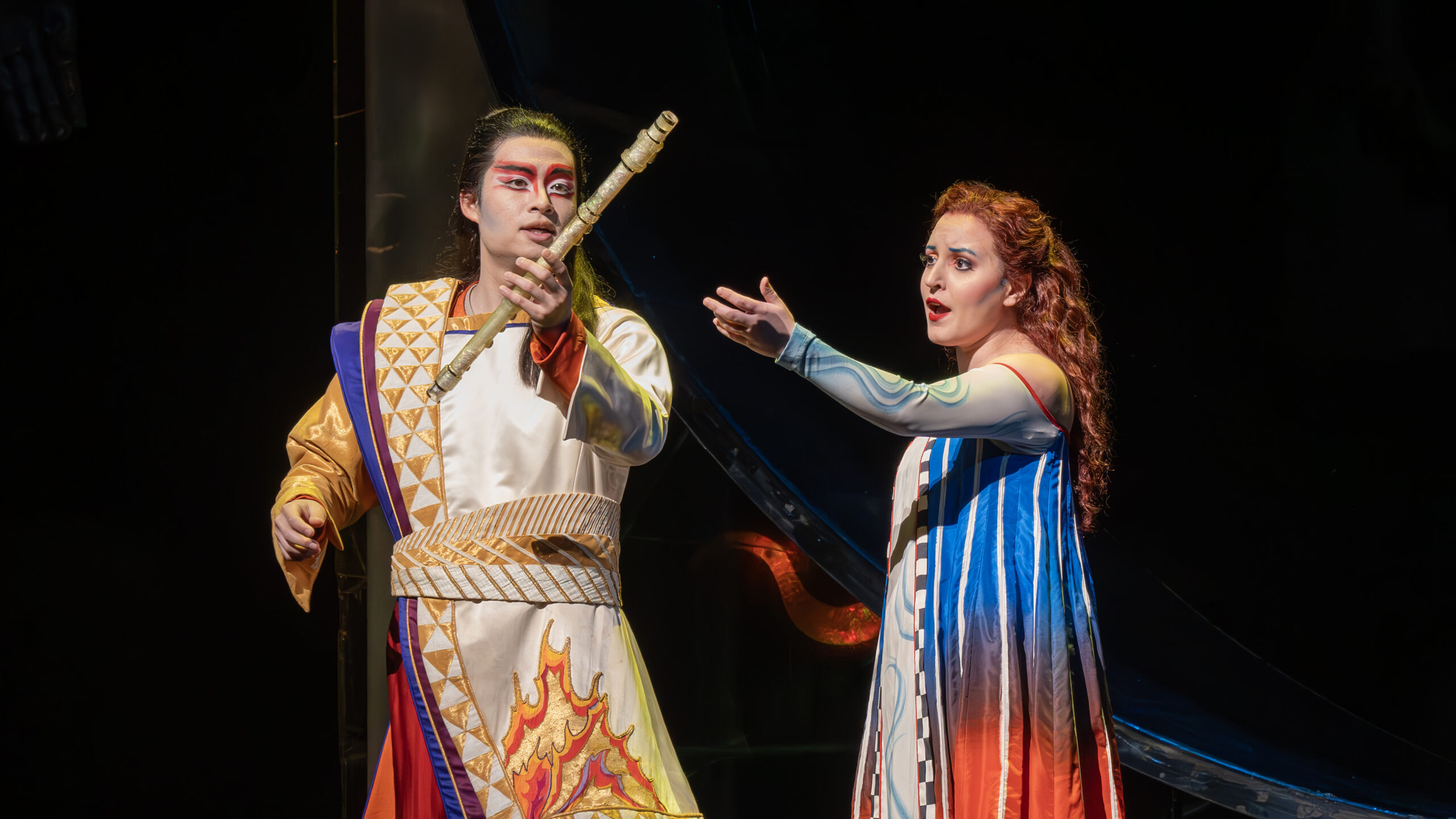
Following the 2022 premiere at Santa Fe Opera, the production brought back original cast members—countertenor Kangmin Justin Kim as Song Liling and baritone Mark Stone as René Gallimard—and James Robinson’s original staging in a semi-staged concert version, directed by Kimberley Prescott, the assistant director for the Santa Fe premiere.
Based on David Henry Hwang‘s daring 1986 play, M. Butterfly upends Puccini’s Madama Butterfly with a true story of espionage and identity, drawn from the notorious romance between French diplomat Bernard Boursicot and Chinese opera singer Shi Pei Pu. Where Puccini fetishizes a Japanese woman’s sacrifice, M. Butterfly pulls out the rug, offering instead the tragic self-delusion of French diplomat who is lead to a Cio-Cio-San-style end. This subversion brilliantly critiques Puccini’s fantasies, exposing the seductive and ultimately destructive illusions of Western stereotyping. It is therefore significant that a major cultural institution in the UK, where discussions of anti-Asian racism are ongoing, summoned Huang’s M. Butterfly to celebrate the centennial of Puccini.
Huang deftly takes Puccini’s shadow along with the narrative, particularly by inverting the Act I overture motif in Madama Butterfly into a quasi-pentatonic mode, all while confronting the racial and gender stereotypes that Hwang’s original play so sharply exposed. In the opera’s final scene, Gallimard takes his own life—whether if that is to preserve his love or to avoid confronting his own queerness remains ambiguous. Here, Huang’s critique reaches its apex, weaving inversions of Puccini’s motifs right up to Gallimard’s last breath. By relentlessly echoing these twisted themes, Huang underscores the irony, dismantling Puccini’s intent to evoke tears through Cio-Cio-San’s death and casting a stark spotlight on the Western exploitation of Asian women.
Kim’s portrayal of Song was remarkable, delivering Puccini’s arias with clarity and lyrics that scathingly criticize East-West preconceptions. In the scene where Song first meets Gallimard, Kim sings Puccini’s “Un bel dì, vedremo.” His countertenor rang with crystalline precision, both technically smooth and emotionally charged. He effortlessly embodied the fantasy that ensnares Gallimard and rendered high notes with stability. Along with Puccini arias, in the scene where Song confronts Gallimard’s imperialist fantasy, Kim delivers the line, “But because it’s an Oriental who kills herself for a Westerner. Ah! You find it beautiful,” with a pointed emphasis on the final word. Suddenly shifting from a Western vocal style to a Chinese sliding tone that rises hauntingly, the effect on the word was nothing short of striking.
Stone as René Gallimard delivered a deeper, more nuanced interpretation of the character than in the Santa Fe premiere. Reaching the emotionally charged duet “Ah, Beautiful Night” with Kim, Stone deepened his interpretation, offering a rich contrast to Song’s enigmatic allure. In this duet, Stone portrayed Gallimard as an even more love-blinded man than in the Santa Fe premiere, his voice soft yet intense, conveying a sincerity that felt both tender and consuming. Their voices blended beautifully, creating a harmonious yet uneasy unity that mirrored the fatal fantasy binding them. Moreover, in Act III, as Song disrobes, forcing Gallimard to confront Song’s biological reality—she is, in fact, he—Stone fully conveyed Gallimard’s torment, capturing the agony of facing an unbearable truth.
Singaporean-British mezzo-soprano Fleur Barron as Comrade Chin threw herself into her scenes, her intense performance and biting delivery setting a tonal shift from the romance-imbued moments of Gallimard and Song. Barron’s portrayal illuminated Chin’s ideological fervor, giving her character a strange allure all its own.
Meanwhile, Charne Rochford as Marc—Gallimard’s old friend from school—made a strong impression, his resonant voice filling the hall with a booming, vivid presence that perfectly matched his character’s bombastic, imperialist attitudes. Kevin Burdette, reprising his roles as Manuel Toulon and the Judge from Santa Fe, nailed the conversation scenes with Gallimard with disarming ease, bringing a sense of vocal gravitas to the roles.
Under Carolyn Kuan’s baton, the BBC Symphony Orchestra captured the score’s nuanced rhythms, occasionally enriched by Chinese percussion, in practiced synchrony with the singers’ phrasings and paces. Particularly during Song’s scenes, Kuan’s attention to detail and eye contact with the singers allowed for impressive coordination, letting the music breathe as an emotional undercurrent to the onstage drama. Her careful pacing notably heightened the musical tension between Kim and Stone, while the BBC Singers’ “Humming Chorus” added a haunting beauty to Gallimard’s fantasies as memories of China and Song drifted into bittersweet nostalgia. The BBC Singers delivered the delicate four-part harmonies with remarkable cohesion, imbuing the scenes with a sound that felt both dreamlike and tinged with sorrow.
Huang’s M. Butterfly revival delves deeply into cultural fantasies and the destructive self-deceptions they create, expertly unraveling Puccini’s original storyline with a pointed musical and thematic critique. If you’re intrigued by the UK premiere of M. Butterfly, tune in to BBC Radio 3 on Saturday, 9 November for a chance to catch this revival.
Photos: BBC/Mark Allan
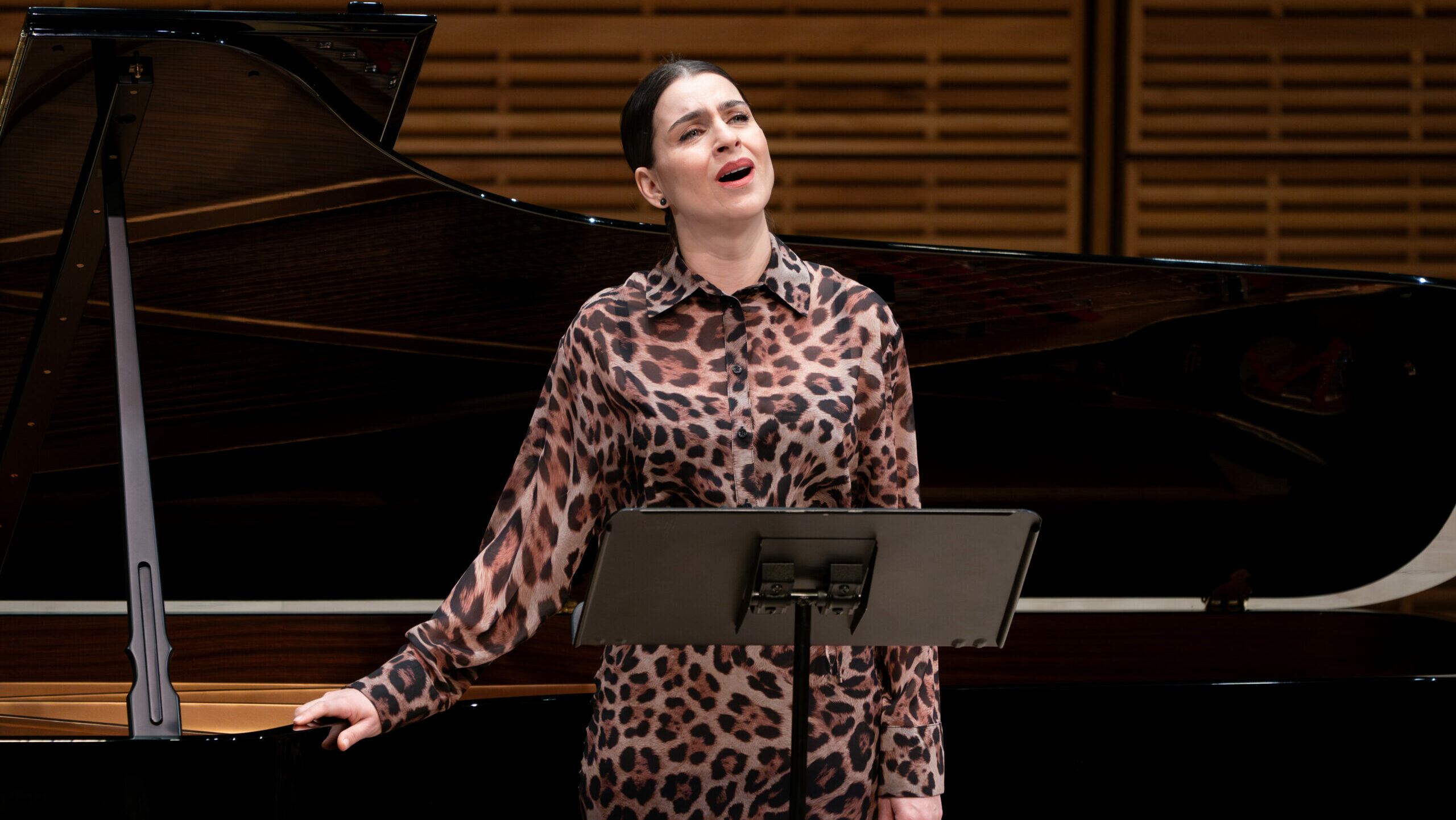
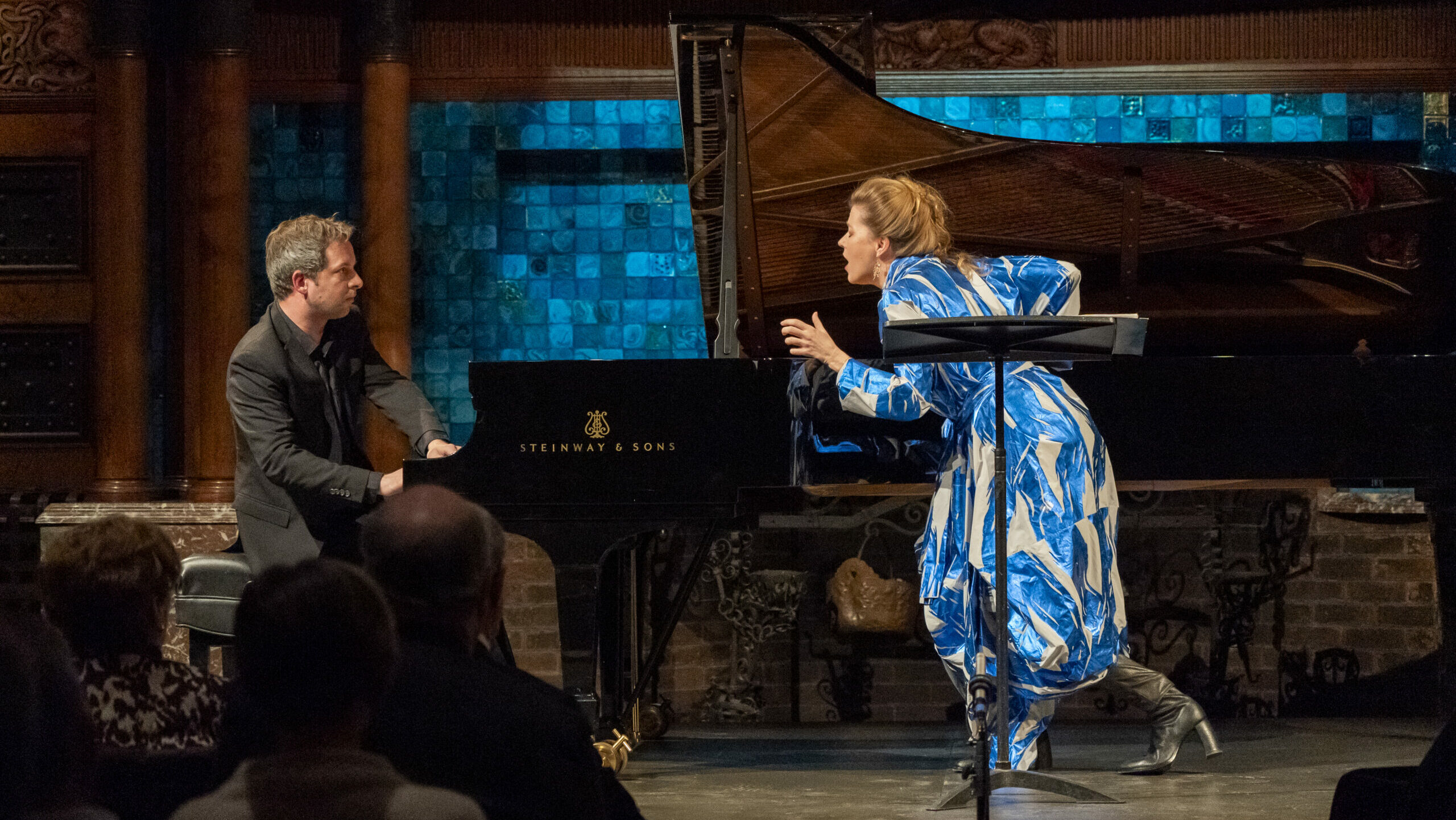






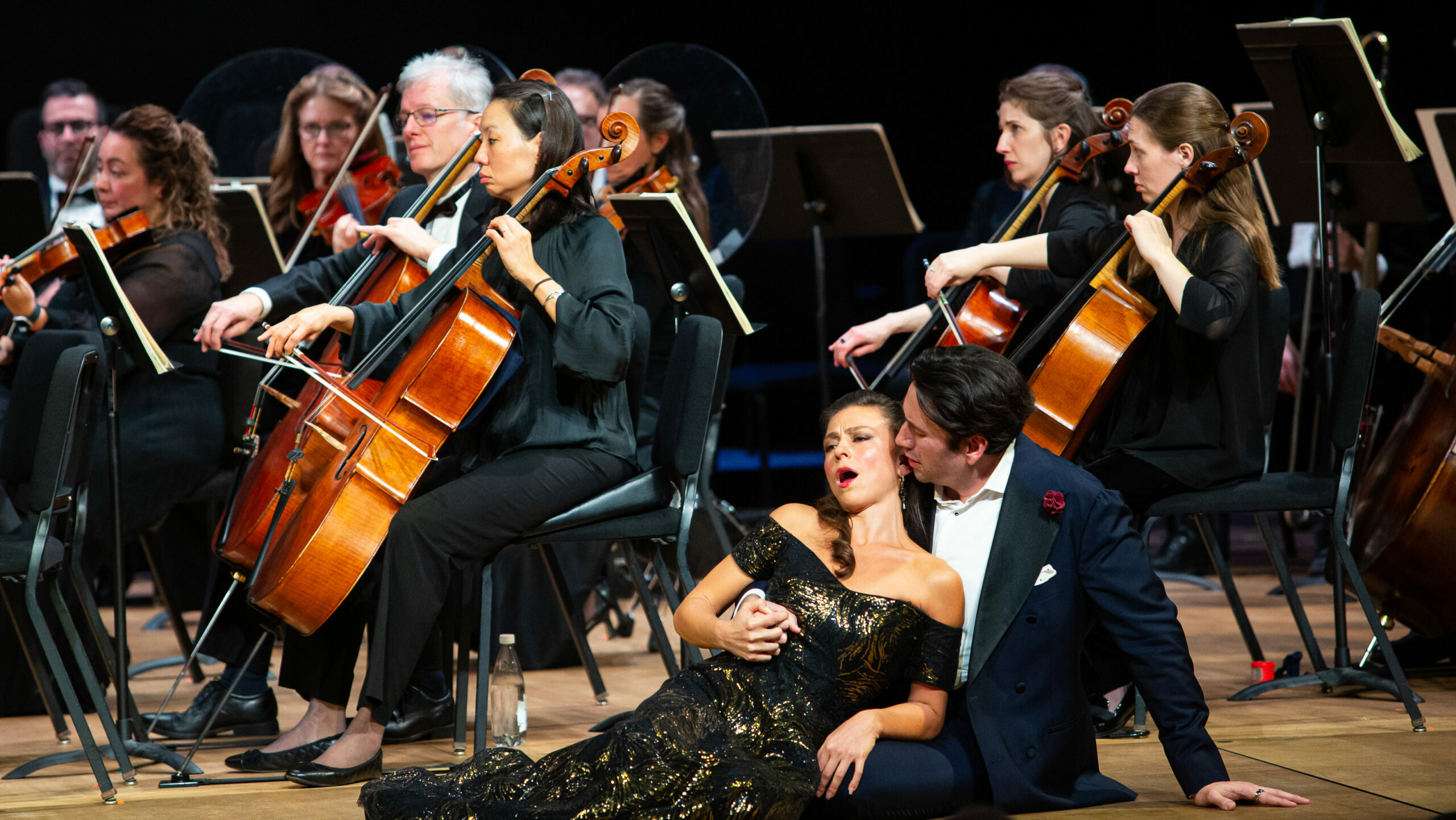
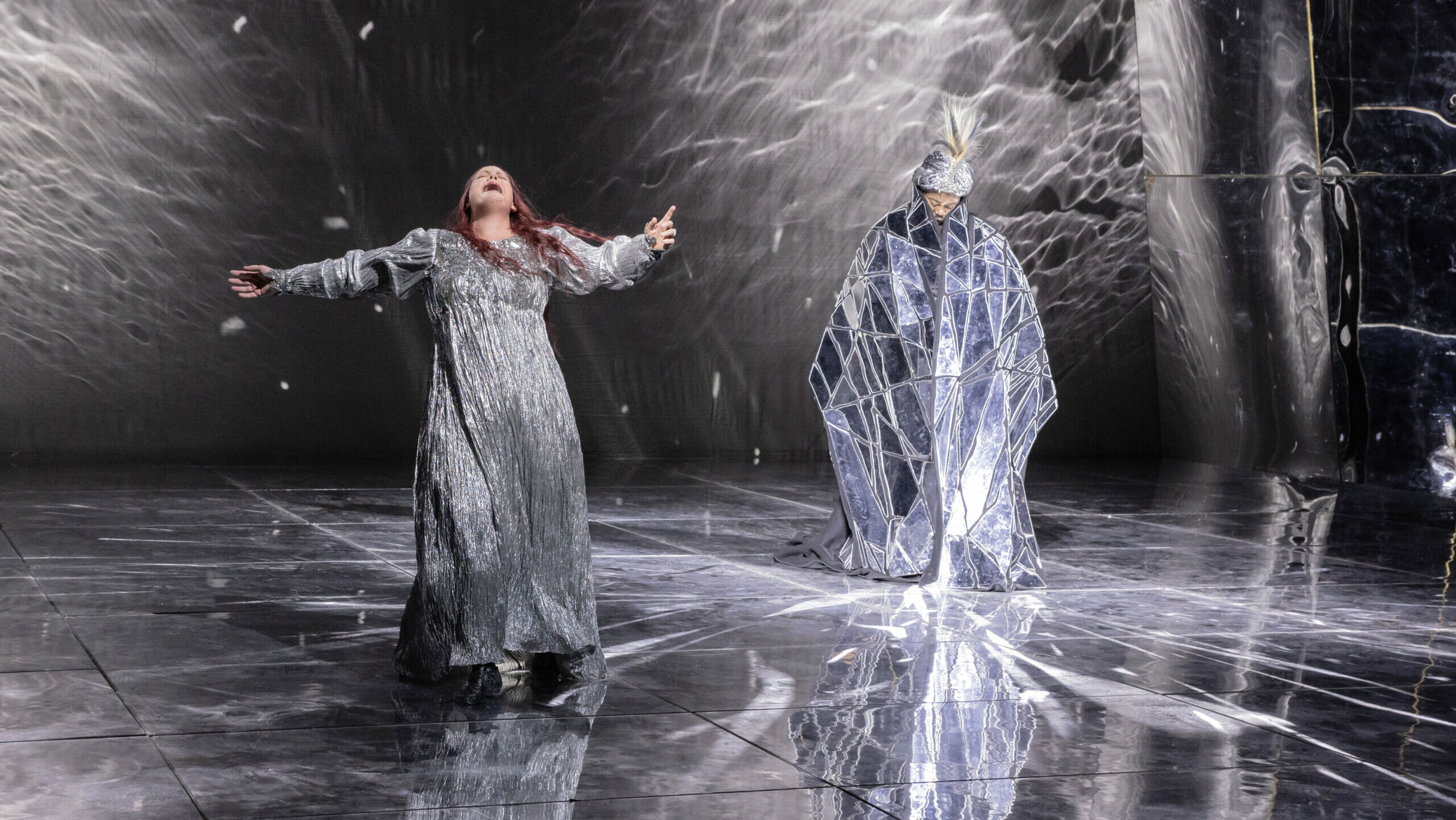
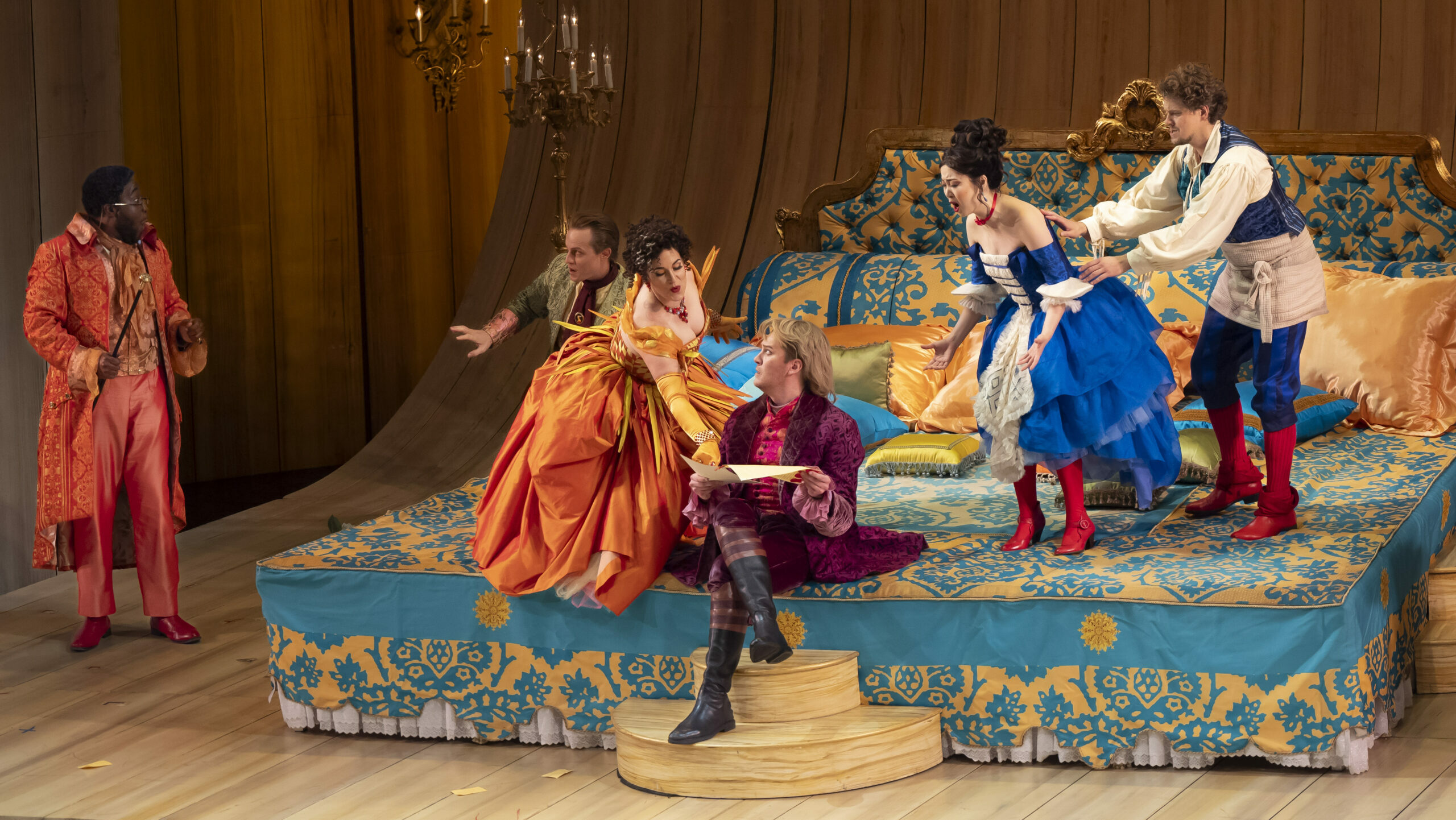
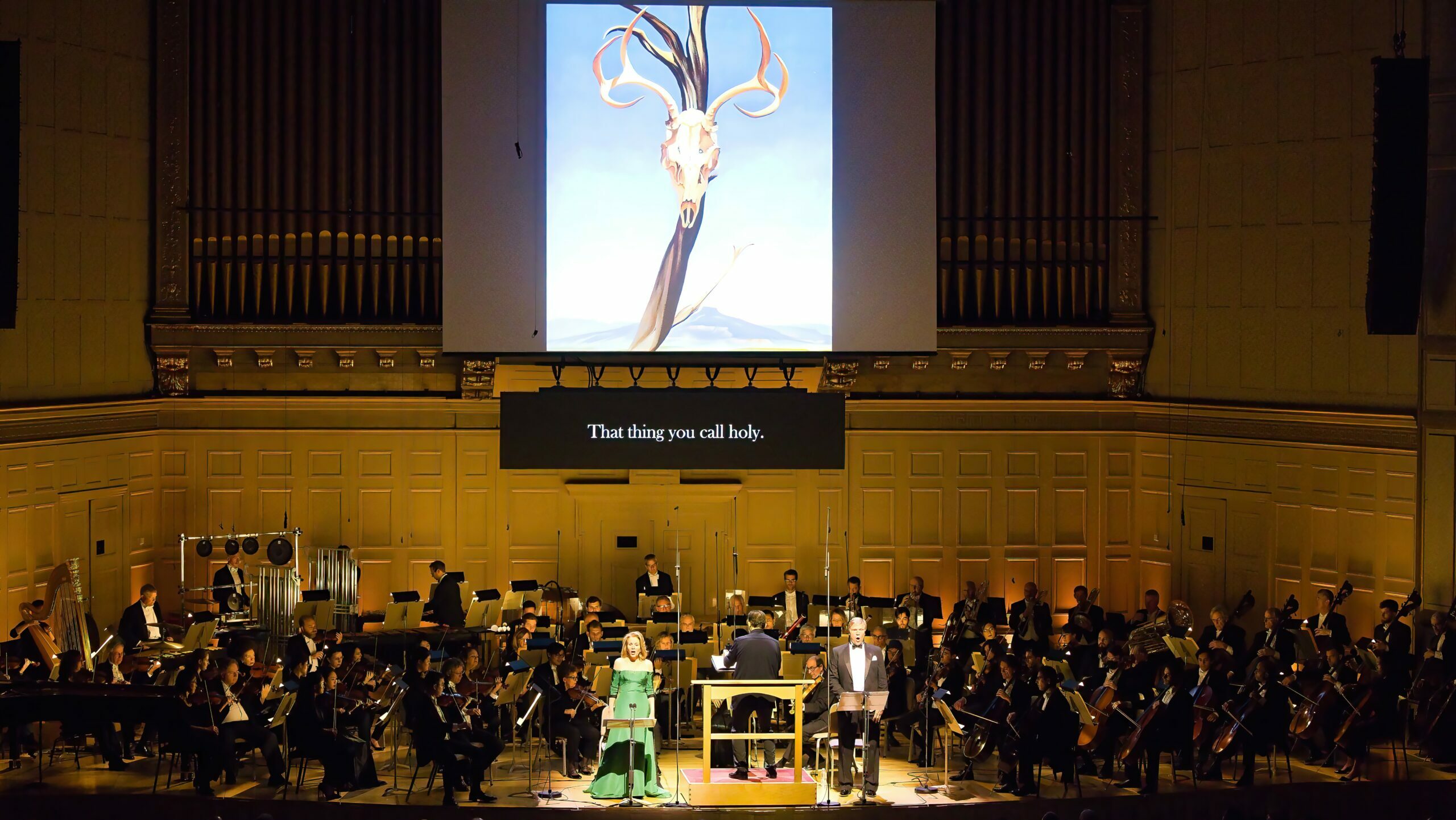
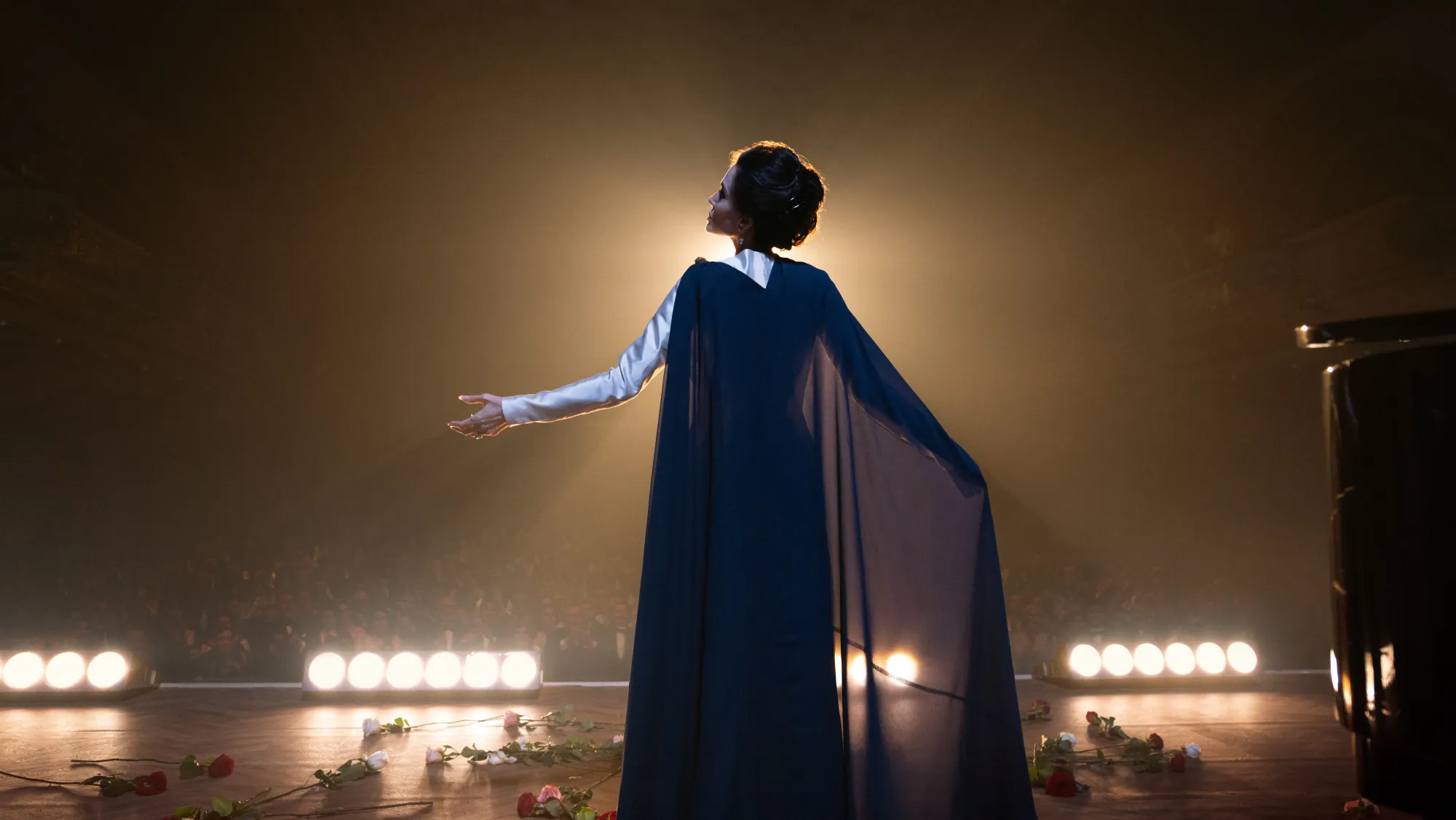
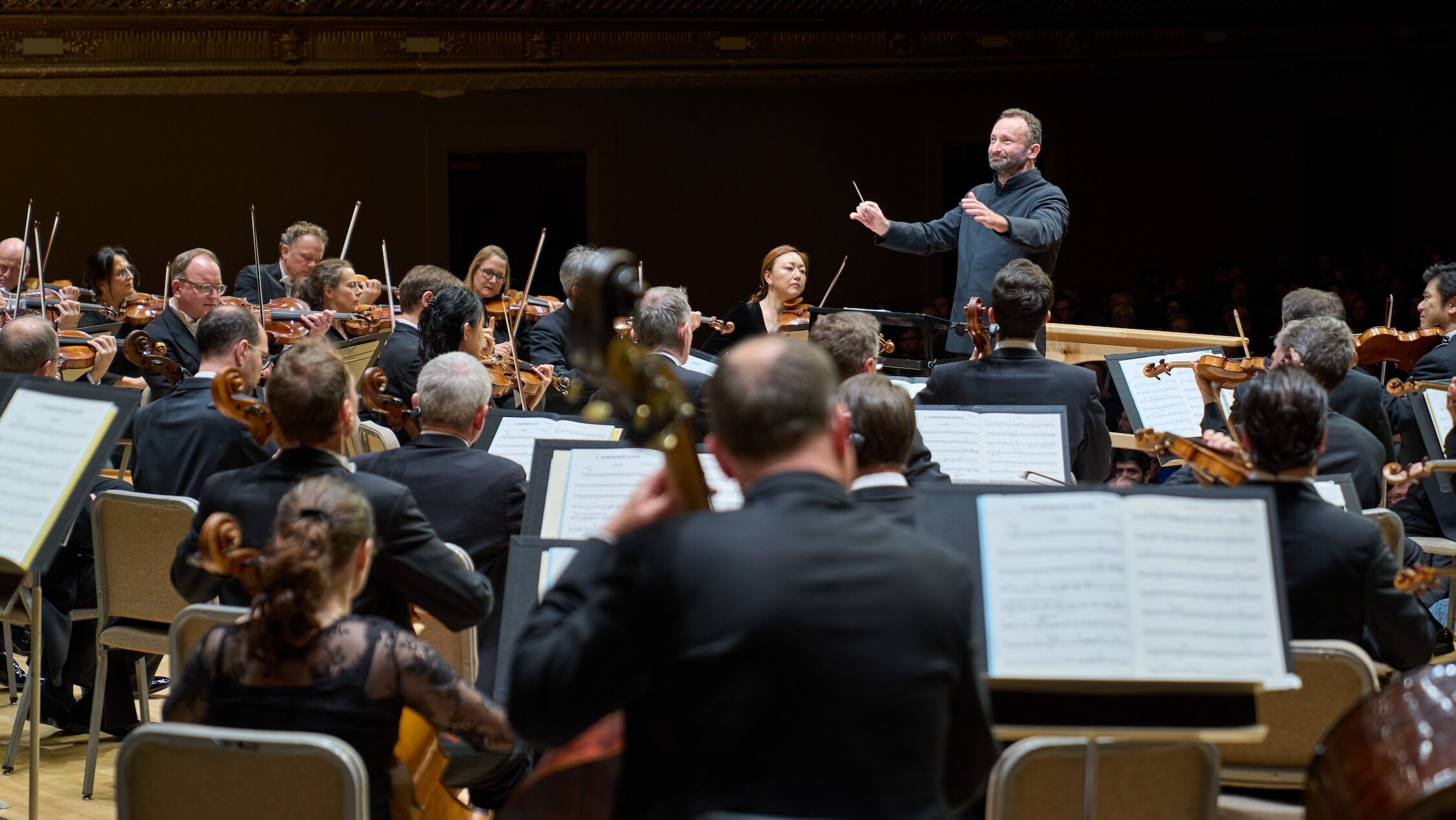
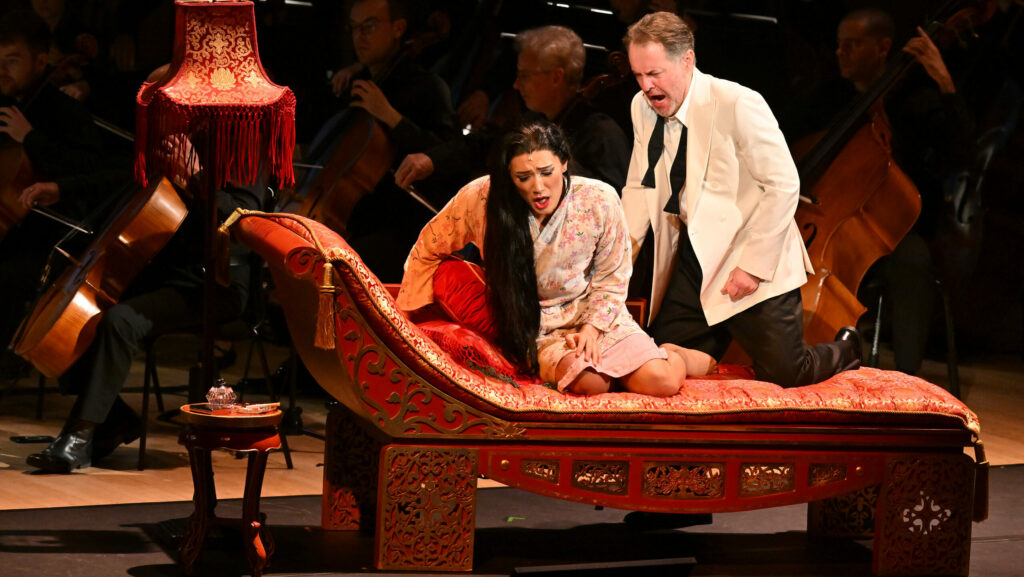
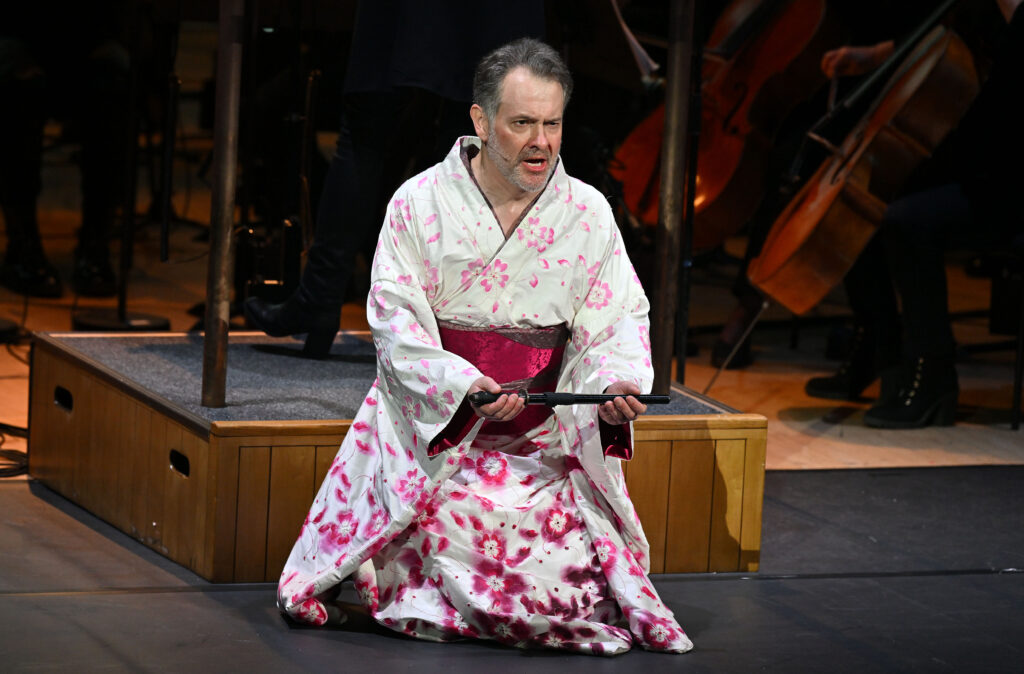
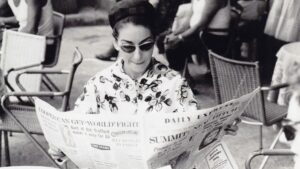

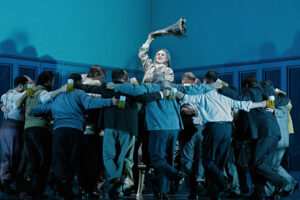



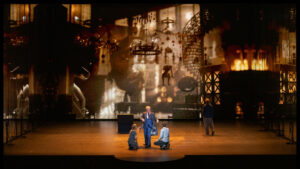




Comments